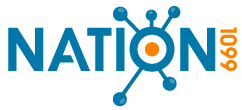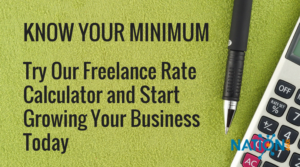It sounds counterintuitive, but the best way to win high quality clients and get more freelance consulting jobs may be to convince them not to work with you. This thought flips the general psychology of business owners on its head.
Usually you talk to a prospective client about how awesome you are. You tell them about the amazing projects you’ve done and the problems you’ve solved for past clients.
You do this all to make them believe that you are indeed the best freelance consultant to complete their project. Once they’ve heard how amazing you are, clearly you’ll be the choice for their project.
This approach to getting more consulting work is entirely wrong. You’d be much better off convincing them that they don’t want to work with you. By using the four tactics below, you will win more freelance consulting jobs with less effort.
1. Acknowledge that someone else is cheaper

The first thing you need to tell your prospects is that someone else is likely cheaper. Why don’t they hire someone overseas, or hire an intern or get someone they already employ to do the work? I mean, you’re not cheap and they should know that out of the gate.
Good freelance consultants aren’t cheap. They’re in demand. They have limited time. They bring lots of value to their customers and that huge amount of value costs more than the average freelance consultant.
When you acknowledge your price — and your value — you will certainly have some prospective consulting clients agree with you and select a cheaper alternative.
This is actually a good thing for your freelance consulting business in the long run. If they wanted a cheaper alternative they would have spent time trying to drive you down on pricing. Clients that start by telling you how much cheaper you can do the work don’t truly value you as the expert that you are. It’s going to take way more work to make the project go smoothly than with a client that values your expertise.
Let them go happily.
Many of your prospects will hear that you’re expensive and have a different response. When you suggest going overseas, or with an intern or having someone they already employ do the work, the magic starts to happen. They’re going to tell you why none of those options work for them. They’re going to say they tried all that and ran into one or another kind of roadblock.
They’re going to describe to you a significant process problem they’re having and how much they value a solution. Essentially, they will tell you why going with a higher priced option is the best choice for them.
While they tell you that paying for your higher priced services is best for them, they’re also reinforcing this belief in themselves and doing your selling for you.
When pitching for freelance consulting jobs, write down the reasons that a higher priced option is the best option for that client and when you send a proposal later, make sure to use their language.
2. Tell them the consulting project doesn’t have enough value
Tell your prospective consulting clients that the project scope they described to you doesn’t have enough value for them to make it worth their while. Due to the minimum fees you charge for your consulting, they’re not going to see a minimum 3X return on their investment.
Now the prospect is going to tell you exactly why it’s still valuable despite your high fees. They’ll tell you how they think that the project will net them at least 3X what you charge for doing the work.
Maybe this project by itself won’t actually yield your minimum 3X return, but they will tell you about a future plan for the business and how this project is just the first step. So while it may not pay off in three months or six months, they can’t take the next step in their growth without your work.
Not only have you uncovered a lead for future freelance consulting jobs, you will also know why they feel the project is valuable in spite of your high rates. Write this information down — when you write up your proposal you can use the exact language they did when you tell them why the project is valuable to them.
Sometimes you will find a consulting project that really isn’t valuable. When you run the numbers the client is going to not only miss the minimum 3X return on investment, it’s going to cost them money. Again this is a good thing.
When you do a project that doesn’t bring value to your client they’re left holding the bag in 3 months. They’ve spent money and only now realize that it was money poorly spent. Even if you delivered an amazing project, they’re not going to give you a great referral because they know it wasn’t a good investment.
It was time wasted in building your business.
When I encounter projects that are not likely to produce value and convince clients of this, they’re usually surprised. They’ve often already gotten two or three quotes on the project — quotes they were willing to pay. I was the only one that showed them it was a bad business decision.
Next time they have freelance consulting jobs, you will be the first one and often the only one they’re going to come to with the work. They’ll want you to look at it to make sure that it’s truly valuable to them and their business. When you work together to make sure it’s valuable, they’re happy to pay for the critical perspective you provided.
3. Show them something else that is more valuable

So far you’ve figured out that despite your high freelance rates, you’re still the best option for your prospect. You’ve tried to convince them that their consulting project isn’t worth it for their business. On both counts, they’ve told you why you are wrong — your rates are perfect for them, and the consulting project is valuable in spite of your high rates.
Now you get to dig a bit deeper with your prospect and find out what the other projects are on their plate. What else could they be doing with the budget to push their business forward? Tell them that it’s likely something else is even more valuable and they should do that instead.
As with the previous tactic, this is where you will hear about other freelance consulting jobs that the prospect has in play. You gain deeper insights into their business, which will help you serve them better.
At this point your prospective consulting client will tell you why the project you’ve been discussing is the highest value thing they can do with their budget. While their other projects are important, they’re not as valuable as the work you can do.
Just as I mentioned earlier, some prospects are going to realize that something else in their business is a higher priority. They may already have a few quotes from consultants willing to take their money, but you were the only one who showed them where the real value in their business was.
The first person they’re going to come to, and likely the only person they’re going to come to, is you when they have new consulting gigs in your area of expertise. You’ve already provided significantly more value than any other consultant they’ve talked to.
4. Explain that you’re very busy

A basic principle of sales is that the early bird gets the worm. Studies show that companies that respond to inquiries within an hour are more likely to qualify the lead and close the sale.
But responding isn’t the same as dropping everything you’re doing. If you emailed me right now and said you had $50K for a freelance consulting project and needed to talk to me today, I’d respond, but I’d say I wasn’t available to talk today.
Instead, I’d send you a link to my Calendly account which I have set up to allow calls about new freelance consulting jobs only on Tuesdays and not to allow new bookings without 36 hours notice.
I realize that your bank account isn’t full, and mine isn’t either, so it may seem scary not to jump at an opportunity like that. But the problem with jumping, is that it diminishes your professional credibility. How busy can you be if you can take a call on a moment’s notice? Clearly not that busy.
A secondary benefit to limiting your call availability is that it increases your productivity. Imagine a day where you aren’t interrupted every few hours to check in with a prospect or a client. That’s a day you can get lots of high quality creative work done in. High quality creative work is what your clients pay you for and happy clients bring in more happy clients.
When you do get on the phone, it’s time to start telling your prospect all of the reasons they shouldn’t be doing their freelance consulting job with you!

How I get more freelance consulting jobs
In March 2016 I got an email from a prospective consulting client who wanted to talk about moving their membership website to a new platform. I used the tactics above with her, and she kept telling me why I was the best option for her work, why the project was valuable and why it was the most valuable thing she could be doing with her money.
She had quotes from people charging less than 50% of my rates. She even had people ready to start that day who said they could do the work.
In spite of this, she waited weeks to get a proposal from me for a discovery project — and she did this after waiting two weeks to get on the phone to talk about the project. This discovery project cost almost as much as other people’s quotes for the whole project.
Then she happily waited three months for me to do the project — even with my high rates.
When I had my exit call with her, following the completion of the project, she told me multiple times that the conversation we had was totally different from any other she had had with her other prospects. I clearly only wanted to work on freelance consulting jobs that were highly valuable to my clients. This made her feel 100% comfortable with any pricing I sent her because we had already decided together that it was well worth her hard earned money.
Related reading: The Value Pricing Mindset: 4 Questions to Reveal Your Client Value
What gig economy professionals often misunderstand about consulting
Many of us in the gig economy think we start consulting after the contract is signed. This isn’t true — our consulting work begins in our first interaction with a prospect.
The care we take in advising clients during the negotiation reflects the quality and integrity of the work we’ll be doing for them in an official capacity. If we cannot be trusted to let prospects know when a consulting project — even involving us — isn’t worth their time, then the doubt this creates after the fact will carry over to the way current and former clients look at us in the long-term.
The value of one great client over the course of your career is worth far more than a bunch of small one-off jobs. When you establish yourself as a credible consultant, your clients won’t just pass you more work, they’ll also be willing to trust you with their friends and colleagues as well.
In short — show prospective consulting clients how you’re different
When you speak to your next prospect, make sure you change the conversation you’re having. Convince them that:
• there is someone else cheaper.
• that the project scope just isn’t worth it.
• some other project they’re considering doing is a better option.
By doing these three things you will dig deeper into the value your prospects want for their business. You’ll send fewer estimates. You’ll pull in a steadier flow of freelance consulting jobs. And you’ll stop juggling 20 low-priced clients and work with three-to-five higher-value clients in a year.
In short, you’ll start running a better business — like you envisioned when you started your freelance career.
Updated 7/14/17

Curtis McHale
Guest Contributor
Curtis is a business coach and speaker. He focuses on helping businesses build effective processes for vetting ideal clients and building a business that doesn’t take every hour of every day to run. Learn more on his website.













